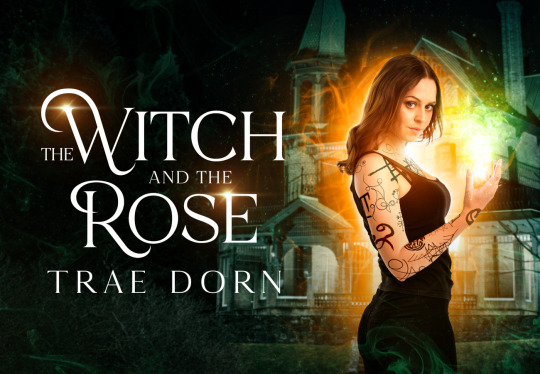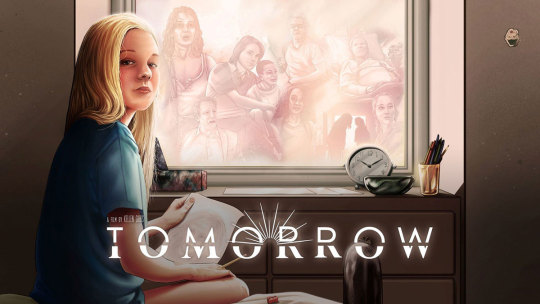#Sherman A. Rose
Text

Jack Carson-Nancy Gates "Magnificent roughnecks" 1956, de Sherman A. Rose.
10 notes
·
View notes
Text
















Nightmare Time 2 (Vol 1-4) Soundtrack on Spotify
[The Guy Who Didn't Like Musicals] [Black Friday]
[Nightmare Time] [Workin Boys] [Nerdy Prudes Must Die]
#zoey chambers#linda monroe#lex foster#miss holloway#sherman young#girl jeri#angela giarratana#boy jerry#ziggs#hfgifs#nightmare time 2#hatchetfield#hatchetverse#starkid#team starkid#mariah rose faith casillas#lauren lopez#jon matteson#kim whalen#jaime lyn beatty#curt mega#jeff blim#bryce charles#jae hughes
199 notes
·
View notes
Text

day 17
#homestuck#jade harley#rose lalonde#jaderose#rosejade#homestuck fanart#hs fanart#daily rosejade#mr peabody and sherman#penny peterson#i forgot the other guys full name#sherman#Thoughts?
72 notes
·
View notes
Text

Model Hannale Sherman on the terrace of Condé Nast's Park Avenue apartment, 1928. This 30-room penthouse, designed by Elsie de Wolfe, was the scene of Nast's many legendary parties. Sherman wears a crepe de chine skirt and jacket over a cream-colored blouse, by Hattie Carnegie, and a hat by Rose Descat.
Photo: Edward Steichen for Vogue via the Condé Nast Store
#vintage New York#1920s#Edward Steichen#vintage fashion#1920s fashion#Conde Nast#Hannale Sherman#Hattie Carnegie#Jazz Age#Rose Descat#penthouse
110 notes
·
View notes
Text

The Rose House, a Victorian relic in the quaint college town of Parrish Mills, harbors a dark secret. A malevolent spirit haunts its halls, and seeks to claim the home’s newest owner, young professor Riley Whittaker. Riley seeks the aid of the enigmatic Mia Graves, a captivating witch with a mysterious past. Only Mia can stand against the vengeful spirit's spectral grip and the lingering enigma of Lila Rose, another ethereal resident of the haunted mansion. In a dance between danger and desire, Mia must unravel her own darkness to save Riley from the clutches of the supernatural.
My new novel, The Witch and the Rose, is now available in paperback and Kindle editions. It's queer (occasionally spicy) contemporary fantasy, and it's a lot of fun.
Not that I'm biased or anything.
#contemporary fantasy#urban fantasy#novel#queer#Insert Jay Sherman “Buy My Book” voice#Mia Graves#The Witch and the Rose
233 notes
·
View notes
Text


72 notes
·
View notes
Text

Congratulations to Carter Rose Sherman, who made her Arwen debut yesterday! ✨️
shared by Lauren Smith (Agent, Talent X Alexander) via Instagram stories on 17 August 2024
#lotr musical#lord of the rings musical#chicago shakespeare theater#carter rose sherman#arwen#understudy love
29 notes
·
View notes
Text
May 25, 2024
By Dennis McLellan
(Los Angeles Times) — To Walt Disney, who personally invited Richard and Robert Sherman to become full-time staff songwriters at his Burbank studio in 1960, they were the “boys.”
The Sherman brothers were the ideal match for Disney’s family-film factory, where they built a career creating what Richard Sherman once described as “upbeat, spirited, happy songs that make people feel good.”
The songwriting siblings were responsible for the bouncy, tongue-twistingly memorable “Supercalifragilisticexpialidocious” and “A Spoonful of Sugar” from the hit 1964 movie musical “Mary Poppins,” for which they won two of the film’s five Oscars — for best score and best song, the haunting “Chim Chim Cher-ee.”
During their years at the studio, the Shermans were as much a part of the early Disney magic as the imagineers, who designed the theme parks and imagined the rides. Together, they wrote dozens of songs for Disney TV productions and movies such as “The Parent Trap,” “The Absent-Minded Professor,” “Summer Magic,” “That Darn Cat!,” “The Sword in the Stone,” “The Jungle Book,” “The Aristocats,” “Bedknobs and Broomsticks” and “Winnie the Pooh” cartoons.
They also penned the theme song for Disney’s TV show “The Wonderful World of Color” and wrote songs heard in Disney theme-park attractions, including “The Tiki Tiki Tiki Room,” “There’s a Great Big Beautiful Tomorrow” and the unforgettable — in ways both good and bad —“It’s a Small World (After All).”
“They were made by God for Walt Disney,” said Dick Van Dyke, who stared in “Mary Poppins” opposite Julie Andrews. “They somehow managed to convey Walt’s meaning in those songs.”
The gregarious half of the prolific songwriting duo, Sherman died Saturday, May 25, at Cedars-Sinai Medical Center in Beverly Hills, due to age-related illness. He was 95. The Walt Disney company announced the news of his death in a press statement.
Robert Sherman, who was two and a half years older than his brother, died in London in 2012 at 86.
#Richard M. Sherman#Robert B. Sherman#Sherman Brothers#Disney#Walt Disney#Mary Poppins#Chitty Chitty Bang Bang#The Slipper and the Rose#Disneyland#Walt Disney World#Bedknobs and Broomsticks#The Parent Trap#The Jungle Book#The Aristocats#Winnie the Pooh#Julie Andrews#Dick Van Dyke#obituary#Los Angeles Times
14 notes
·
View notes
Text

"I've only got one life, Rose Tyler. I could spend it with you. If you want."
#tenrose#tenth doctor#rose tyler#tentoorose#tentoo#metacrisis doctor#doctor who#sherman's gallifreyan#Gallifreyan
25 notes
·
View notes
Text
My Peak TV journey *The Marvelous Mrs Maisel*
Prior to the final I made some predictions about where the show would end up. one was that Esther would grow up to resent her mother like Lorelei resented Emily Gilmore. I was right about that. I also speculated that maybe this was the story of how Midge could make anybody laugh, but could not make it as a comic. I was wrong about Midge’s career.
I liked the flash forwards but some of the choices of people she would be involved with seemed more funny peculiar than funny haha. It implies she was involved with Mike Nichols. In the first season there was an episode where she did not know about his act with Elaine May and almost ended up in a Nichols and May knock off act, making this later implication funnier. The flash forwards made a big deal about her working with Bob Hope which tracks with aspirational dialogue from earlier in the series. While Hope had a long and successful career, (meaning I understand why he was chosen as the symbol of what success in the field looked like), he also fell incredibly out of fashion starting in the late sixties. As a choice, it says Midge never quite seemed “young” in her career. Which, I guess makes sense.
That said I really liked the final season. In earlier posts about the show I acknowledge criticism that the Weisman’s players by goy actors were so much more likable than the Maisels, played by actually Jewish actors. This season seemed to recognize it and subtly correct.
The elder Maisels were suddenly hilarious, if still crass and unkind. The Wiseman’s reliance on their housekeeper Zelda, who got married and retired over the season revealed some very unappealing aspects of their characters.
The show sometimes felt like it took place in 1960 for multiple years. As a series The Marvelous Mrs Maisel didn’t exact love the time period in which it took place, so much as it loves the pop culture from its time. It never made me want to be there, just to keep watching people in their colorful, well tailored clothes. But it was not particularly critical, nor interested in a “this is what led to things being the way they are now” type of rational for its existence. As a choice it’s doesn’t clarify, but doesn’t let you wallow for the good old days either. Sometimes it felt like every year on screen was 1960. This disinterested ambivalence occasionally led to wanting to me I’d want to fact check it, but rarely actually doing it. The one time I did was regarding Clark Gable’s death, which I thought took place a year after the season was set. I was wrong.
In the final episode there was an establishing shot of the Ansonia indicating that is where Midge live in 2005. Later she makes a comment about Yoko Ono being one of her neighbors. Ono famously lives in the Dakota, several avenues from the Ansonia. I was going list this as another thing that makes me doubt the interest in veracity o the series. Then I found this discussed in this post finale interview with Amy Sherman-Palladino. It’s a fictional building in a fictional timeline. Don’t make a big deal about it. Some how this made define with it.
I want to end this by praising the actors who joined the series late players.
Some how I forgot that Julie Klausner joined the series late in the fourth season, but she regularly had me giggling over her appearances in the final season. (Interestingly, Klausner is not a Lenny Bruce fan.)
Alfie Fuller is new to me and she was so great as Dinah. I hope Dinah has as great a management career and I look forward to seeing Fuller in something soon.
Reid Scott is such a charming bully as Gordon Ford, you almost don’t resent his character’s success. (Though I think the no writer on the show rule was a good one)
I’ve liked Chris Eigeman since those Whit Stillman films and I really liked seeing him run the Village Voice here.
Jason Ralph, (Rachel Brosnahan’s real life husband) had some very funny bits as Mike, especially in relation to Suzie. Seeing him here mostly made me think how I want to see him as a lead again.
Nina Arianda has intrigued me since I saw her play Stan Laurel’s wife in Stan and Ollie. She still does as Gordon’s wife/Susie’s ex, Hedy.
#Television#My Peak TV Journey#the marvelous mrs. maisel#midge maisel#Suzie Meyers#Rachel Brosnahan#amy sherman palladino#Peak TV#Julie Klausner#Alfie Fuller#Reid Scott#chris eigeman#Jason Ralph#Nina Arianda#abe weissman#rose weissman#joel maisel#moishe maisel#shirley maisel#Ester Maisel#Ethan Maisel
12 notes
·
View notes
Photo


Sherman de Rose
Gender: Male
Sexuality: Gay
DOB: N/A
Ethnicity: Sri Lankan
Occupation: Activist
44 notes
·
View notes
Text
well uh. may he who cast the first stone hit one of those fucking flying things
#dr who#dw#dw spoilers#s1 e8#1x8#rose tyler#mister? Doctor.#this is like peabody and sherman#the ninth doctor#9th doctor#the reapers dr who#the reapers#reapers#yeah.#just a few days ago i was this really brilliant secondary blog
4 notes
·
View notes
Link
Discover the extraordinary journey of Kentucky Senator Bourbon and its new John Brown Bourbon Release! Celebrating Kentucky's rich history and crafted with unmatched expertise. Get ready to indulge in this highly anticipated, limited edition batch. Cheers to Kentucky's legacy!
#Kentucky Senator Bourbon announced the upcoming release of its fifth small batch of Kentucky straight Bourbon whiskey#titled after the Kentucky Senator John Brown#known for his pivotal role in bringing about Kentucky’s statehood. This fifth batch will be available this summer and completes the run of#followed by the John Carlisle release (aged seven years) and John Sherman Cooper release (aged eight years). The John Brown Release is high#the Bourbon boasts a robust 107 proof with a mash bill comprising 75% corn#21% rye#and 4% malted barley. Approximately 1#200 bottles of this limited edition 2024 small batch Bourbon will be distributed#retailing for a suggested price of $149.99. Crafted in Kentucky#the Bourbon is meticulously distilled and aged before being bottled at Bluegrass Distillers Bluegrass in Lexington and distributed by Kentu#with a single barrel private selection version offered at all Liquor Barn stores. Additionally#this exclusive release can be purchased online at Bourbon Outfitter. In a special collaboration#a limited quantity of the John Brown Release will be offered at the renowned Jack Rose Dining Saloon in Washington#D.C. and its neighboring spirits shop#Premier Drams. “Damon and I are thrilled to continue our journey of sharing our passion for Kentucky’s native spirit#” Co-founder Andre Regard said in a news release. “Our previous releases have been recognized with prestigious awards#and we are committed to delivering exceptional taste.” On Kentucky’s 232nd birthday#we are proud to honor John Brown with our next release. As a Virginia congressman#he sponsored the bill making KY the 15th state. Shortly thereafter#he was elected as our 1st U.S. Senator. pic.twitter.com/bN2ptM5VSN — Kentucky Senator Bourbon (@KentuckySenator) June 1#2024“For our fifth release#we’ve maintained our signature mash bill while extending the aging process to nine years#” Co-founder Damon Thayer added. “Paired with the legacy of Senator John Brown#one of Kentucky’s most influential figures#this release promises a truly memorable taste.” Each release of Kentucky Senator Bourbon is dedicated to a distinguished U.S. Senator from#John Brown was Kentucky’s first U.S. Senator. A Virginian who eventually settled in Franklin County#KY#he was the Congressman who represented the District of Kentucky & sponsored the bill making the Commonwealth the 15th state. He was elected#serving until 1805. He twice served as President Pro tem of the U.S. Senate. He settled in Frankfort#where he built his home
0 notes
Text
Tomorrow
Tomorrow (2023)
#KellenGibbs #CharityRose #ZacharyRaySherman #RichardNeil #JuliaParker #TessaEspinola
Mehr auf:
Jahr: 2023
Genre: Drama / Fantasy
Regie: Kellen Gibbs
Hauptrollen: Charity Rose, Zachary Ray Sherman, Richard Neil, Julia Parker, Tessa Espinola, Arthur Roberts, Jordan Knapp, Diego Medellin, Kally Khourshid …
Filmbeschreibung: Das Mädchen kämpft darum, nach Hause zurückzukehren, als sie unerklärlicherweise jeden Tag als eine andere Person aufwacht…

View On WordPress
0 notes
Video
youtube
From Robber Barons to Bezos: Is History Repeating Itself?
Ultra-wealthy elites…Political corruption…Vast inequality…
These problems aren’t new — in the late 1800s they dominated the country during America’s first Gilded Age.
We overcame these abuses back then, and we can do it again.
Mark Twain coined the moniker “The Gilded Age” in his 1873 novel to describe the era in American history characterized by corruption and inequality that was masked by a thin layer of prosperity for a select few.
The end of the 19th century and start of the 20th marked a time of great invention — bustling railroads, telephones, motion pictures, electricity, automobiles — which changed American life forever.
But it was also an era of giant monopolies — oil, railroad, steel, finance — run by a small group of men who had grown rich beyond anything America had ever seen.
They were known as “robber barons” because they ran competitors out of business, exploited workers, charged customers exorbitant prices, and lived like royalty as a result.
Money consumed politics. Robber barons and their lackeys donated bundles of cash to any lawmaker willing to do bidding on their behalf. And when lobbying wasn’t enough, the powerful turned to bribery — resulting in some of the most infamous political scandals in American history.
The gap between the rich and poor in America reached astronomical levels. Large numbers of Americans lived in squalor.
Anti-immigrant sentiment raged, leading to the enactment of racist laws to restrict immigration. And voter suppression, largely aimed at Black men who had recently won the right to vote, was rampant.
The era was also marked by dangerous working conditions. Children often as young as 10, but sometimes younger, worked brutal hours in sweatshops. Workers trying to organize labor unions were attacked and killed.
It seemed as if American capitalism was out of control, and American democracy couldn’t do anything about it because it was bought and paid for by the rich.
But Americans were fed up, and they demanded reform. Many took to the streets in protest.
Investigative journalists, often called “muckrakers” then, helped amplify their cries by exposing what was occurring throughout the country.
And a new generation of political leaders rose to end the abuses.
Politicians like Teddy Roosevelt, who warned that, “a small class of enormously wealthy and economically powerful men, whose chief object is to hold and increase their power,” could destroy American democracy.
After becoming president in 1901, Roosevelt used the Sherman Antitrust Act to break up dozens of powerful corporations, including the giant Northern Securities Company which had come to dominate railroad transportation through a series of mergers.
Seeking to limit the vast fortunes that were creating a new American aristocracy, Congress enacted a progressive income tax through the 16th Amendment, as well as two wealth taxes.
The first wealth tax, in 1916, was the estate tax — a tax on the wealth someone accumulated during their lifetime, paid by the heirs who inherited it. The second tax on wealth, enacted in 1922, was a capital gains tax — a tax on the increased value of assets, paid when those assets were sold.
The reformers of the Gilded Age also stopped corporations from directly giving money to politicians or political candidates.
And then Teddy Roosevelt’s fifth cousin — you may have heard of him — continued the work through his New Deal programs — creating Social Security, unemployment insurance, a 40-hour workweek, and requiring that employers bargain in good faith with labor unions.
But following the death of FDR and the end of World War II, when America was building the largest middle class the world had ever seen — we seemed to forget about the abuses of the Gilded Age.
Now, more than a century later, America has entered a second Gilded Age.
It is also a time of extraordinary invention.
And a time when monopolies are taking over vast swathes of the economy, so we must renew antitrust enforcement to bust up powerful companies.
Now, another generation of robber barons is accumulating unprecedented money and power. So once again, we must tax these exorbitant fortunes.
Wealthy individuals and big corporations are once again paying off lawmakers, sending them billions to conduct their political campaigns, even giving luxurious gifts to Supreme Court justices. So we need to protect our democracy from Big Money, just as we did before.
Voter suppression runs rampant in the states as during the first Gilded Age, making it harder for people of color to participate in what’s left of our democracy. So it’s once again critical to defend and expand voting rights.
Working people are once again being exploited and abused, child labor is returning, unions are busted, the poor are again living in unhealthy conditions, homelessness is on the rise, and the gap between the ultra-rich and everyone else is nearly as large as in the first Gilded Age. So once again we need to protect the rights of workers to organize, invest in social safety nets, and revive guardrails to protect against the abuses of great wealth and power.
The question now is the same as it was at the start of the 20th century: Will we fight for an economy and a democracy that works for all rather than the few?
We’ve done it before. We can — and must — do it again.
629 notes
·
View notes
